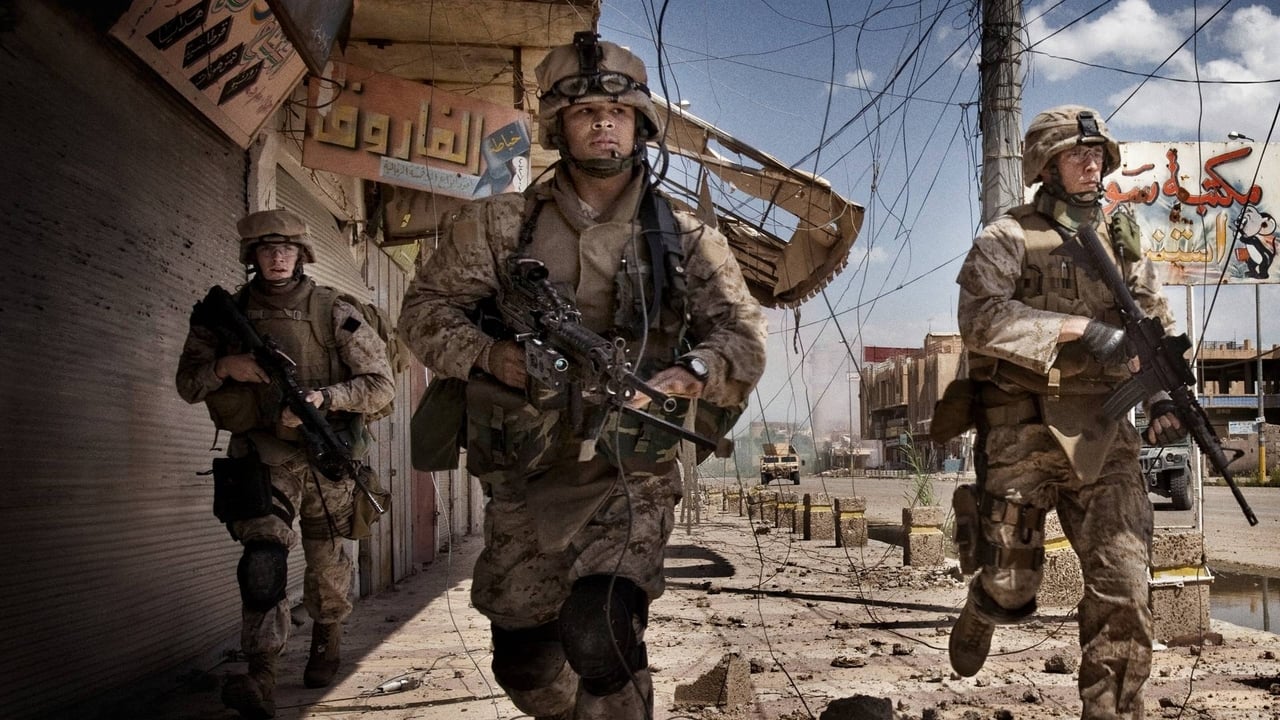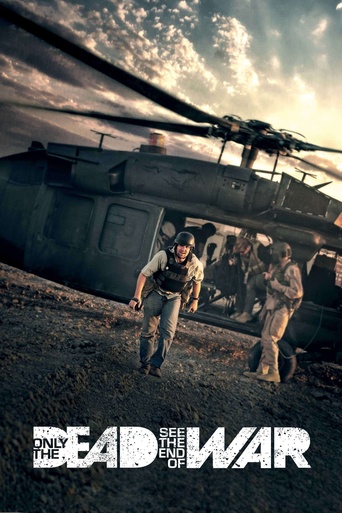

'Time' magazine reporter Michael Ware was sent to Iraq in 2003 to cover the allies take down of Saddam Hussein. The Americans made short work of getting to Baghdad and toppling the regime. In the power vacuum that was created many factions emerged with differing and often extremist ideologies and soon insurrection became rife.Ware was keen to see the war from both sides and went out of his way to contact the insurgents. This he was able to do after gaining the trust of a number of players. He was then used to 'promote' videos of their attacks and other deeds. He soon became involved with one of the most brutal of these insurgents - Abu Musab Al-Zarqawi. In this film he chronicles what he did in a linear format which also relates how the conflict grew and developed, this goes on for some seven years.The footage is often extremely upsetting; showing the aftermath of suicide bombings, torture and beheadings. He has managed to get some very gritty footage and he did put his personal safety on the line on more than one occasion. The question that is left slightly hanging is whether he was abetting their crimes or merely reporting what occurred. He does mention the ethical conflict but some will find it inadequate. However, that is not the point of the film. This is a true account of what one man did in a war that many will say was totally unjustified. I found it upsetting, moving, heart breaking, visceral and sad. This is a film you will not be able to say you 'liked', it is a film that people should see, the true face of war is often air brushed by the media – this is anything but and as such is a film I can recommend.
... View MoreOne has to give props to Ware for bringing us such gripping images, and for partially sacrificing his own mental health in that pursuit. And also for venturing out a few times to be embedded with Iraqi militant groups. However, he is mostly embedded with US troops and it shows - and the film has problems due to the ideology that is expected from anyone hired at media like CNN & Time. Let's start at the very end, with the image of a man who dies in the hands of US troops and who could have been saved by Ware saying something. He has explained this by saying that 1) he had lost his humanity due to the war 2) He had gotten too immersed in his role as a journalist who simply observes but doesn't get involved in things. While these 2 are to some extent true, there is a third, far more powerful explanation: Ware was simply siding with the US military, not with "the enemy", who was represented by the man dying on the ground. Had the situation been reversed, and some Iraqi fighters with access to medical care had a US soldier in such conditions while Ware was filming, he would have been much more likely to ask for help. Certainly Ware acts very worried about a sergeant gone quiet in Fallujah, pro-actively trying to save him. The more personal and extensive interactions with the US soldiers lead the viewer to identify with the US side. Similarly, we hear that anti-US forces are "barbaric" "slaughterers"; with references to times "they had the advantage" in the battle of Fallujah, while US troops are simply "good men losing their grip" "young kids on an impossible mission", with reference to times when they only had "a third of the troops they needed" . Of course, in reality, it was Iraqi fighters that were in general vastly out-gunned by the US, while the amount of slaughter was mostly perpetrated by the US. During the 1st battle of Fallujah shown in the film (2004) only 27 U.S. troops were killed, while a total of 800 Iraqis died of which 572–616 were civilians and 184–228 were fighters. The Lancet report, which covers roughly the same range of years featured in this movie (2003-2006) estimated 654,965 excess deaths related to the war, through the end of June 2006. 601,027 deaths were due to violence. 31% (186,318) of those were attributed to the US-led Coalition, 24% (144,246) to others, and 46% (276,472) were unknown. The causes of violent deaths were gunshot (56% or 336,575), car bomb (13% or 78,133), other explosion/ordnance (14%), air strike (13% or 78,133), accident (2% or 12,020), and unknown (2%). So the data simply doesn't support Ware's ideological, one-sided use of words like "barbaric" "slaughterers" "terror" etc. And this is even ignoring the context of the US invasion being illegal and unjustified. One wonders how we would have felt about a journalist presenting a similar picture, but embedded with the Soviet troops in the 80s in Afghanistan. Also, the film conveniently oversimplifies the fighters in Fallujah by calling them "Zarqawi's men", when they actually came from several different groups, not just the one led by Zarqawi. A sign outside Fallujah's "Martyr's cemetery" reads: "This cemetery is given by the people of Fallujah to the heroic martyrs of the battle against the Americans, and to the martyrs of the Jihadi operations against the Americans, assigned and approved by the Mujahideen Shura council in Fallujah." The Mujahideen Shura Council featured at least 6 different insurgent groups.
... View MoreFantastic story telling by Michael Ware in this gripping doc that portrays the harsh realities of war in a sense that is rarely attempted, let alone achieved. Kudos to the job of capturing the raw emotion from the soldiers' before, during and after conflicts where they are fighting for their lives. They are moments that 95% of the civilian population have never witnessed. The film could of been a tad shorter, as I felt there were a few unnecessary scenes. But overall, the pace and narration were spot on for the most part. This documentary is definitely not meant for the faint of heart, but, if you are interested in REALITY then this film is meant for you.
... View MoreThis is the most confronting and in your face film I have ever seen. Documenting 7 years living in Iraq as a war correspondent for TIME and CNN, Michael (an Aussie) tells an amazing personal story of how he was nearly beheaded, worked to tell both sides of the Iraq war and his personal struggles. I watched a screening where Michael did a Q&A afterward, his insightful, concise and articulate depiction of what he went through, the PTSD, the stories he told and his analysis of Middle East, make this one of the best films. He does the American soldiers justice in this film, it is not a Hollywoodised depiction of the glory of war! This is real war.
... View More